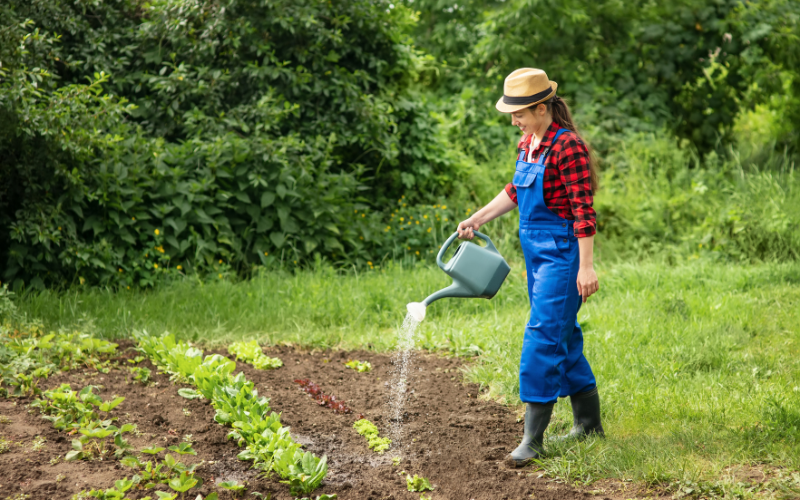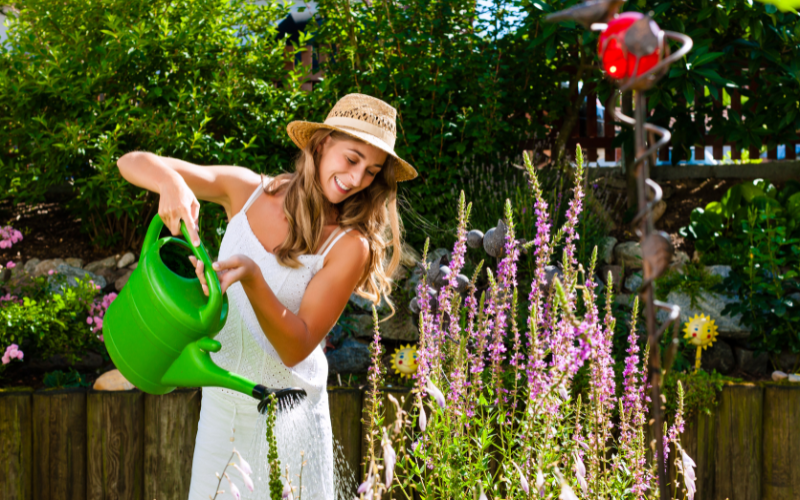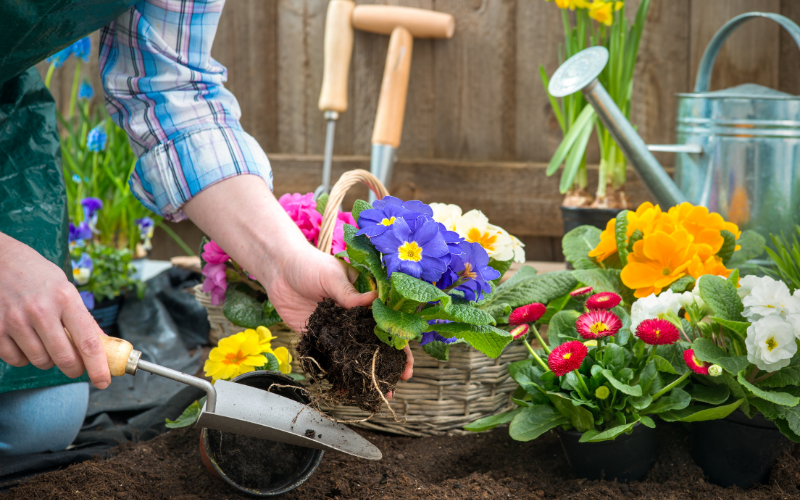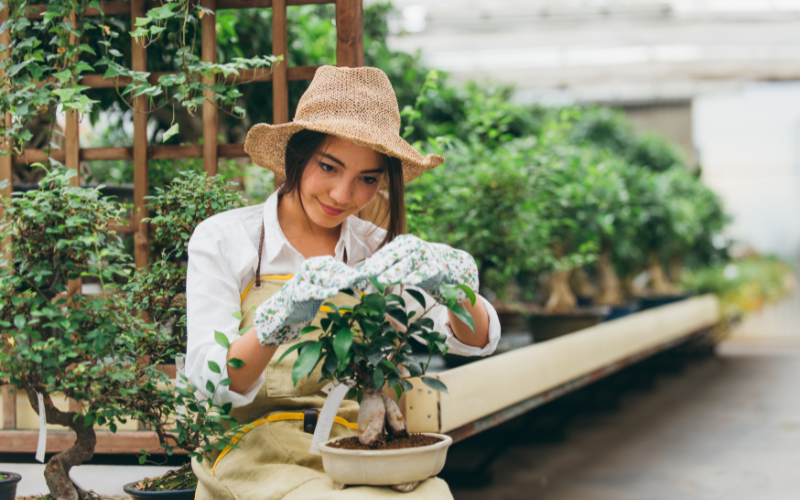Gardening is a wonderful hobby that not only provides you with fresh produce, but it also provides you with numerous health benefits. Gardening as a relaxation technique has been gaining popularity in recent years, as people seek new ways to reduce stress and improve their overall well-being. Whether you have a large backyard or just a small balcony, gardening can be a wonderful way to unwind and recharge.
The Benefits of Gardening as a Relaxation Technique
Gardening is a low-impact form of exercise that has been shown to provide numerous health benefits. Here are just a few of the many reasons why gardening is a great way to unwind and recharge:
- Stress relief: this relaxation technique can help to reduce stress levels by providing a calming and meditative activity. The repetitive motions of planting, watering, and weeding can be very therapeutic, helping you to clear your mind and focus on the present moment.
- Improved mood: Gardening has been shown to improve mood and increase feelings of happiness and well-being. This is due to the release of endorphins and other feel-good chemicals in the brain, which are triggered by physical activity.
- Increased physical activity: Gardening is a great way to get outside and get moving. Even if you have a small garden, you can still get a good workout by performing tasks like digging, planting, and weeding.
- Improved sleep: horticulture has been shown to improve sleep quality and increase feelings of relaxation. This is likely due to the combination of physical activity and exposure to sunlight, which helps regulate the body’s circadian rhythm.
- Connection to nature: it provides an opportunity to connect with nature and experience the beauty of the natural world. This can be very grounding and help you feel more connected to the world around you.
- A sense of accomplishment: horticulture can provide a sense of accomplishment as you watch your plants grow and thrive. This can be a great source of pride and help boost your self-esteem

Getting Started with a Relaxation Technique Gardening
If you’re new to gardening, it can be a bit overwhelming to get started. Here are some tips to help you get started and make the most of your horticulture experience:
- Start small: If you’re new to gardening, start with a small garden or even a few potted plants. You can gradually expand your garden as you become more comfortable with the process.
- Choose plants that are easy to care for: There are many plants that are easy to care for, even for those who are new to gardening. Some great options include herbs, succulents, and leafy greens like lettuce and spinach.
- Create a relaxing atmosphere: Make your garden a peaceful and relaxing place to be. Add comfortable seating, a fountain or other water feature, and plenty of greenery to create a serene environment.
- Get the right tools: Invest in high-quality tools that will make your gardening experience easier and more enjoyable. A good pair of gloves, a watering can, and a trowel are a few essentials that you’ll need to get started.
Gardening as a Treatment After Traumatic Episodes
Traumatic events can have a lasting impact on mental health, leading to symptoms such as anxiety, depression, and post-traumatic stress disorder (PTSD).
While traditional treatments such as therapy and medication are important, gardening can also be a valuable tool in the healing process after traumatic events. It’s important to note that gardening should never replace traditional treatments such as therapy and medication. However, it can be a valuable addition to the healing process, providing a sense of peace and accomplishment in a safe and calming environment.
Toxic relationships can also have a lasting impact on mental health, leading to a sense of loss of self. While traditional treatments such as therapy and medication are important, gardening can also be a valuable tool in the healing process after toxic relationships.

Limits of Gardening for Mental Health
While gardening can have many benefits for mental health, it is important to understand that it is not a cure-all solution. Here are a few limitations to keep in mind when it comes to using gardening as a tool for mental health:
- Limited accessibility: Gardening may not be accessible for everyone, especially those with mobility issues or living in urban areas with limited outdoor space.
- Weather restrictions: it can be limited by weather conditions, such as extreme heat or cold, rain, or snow. This may make it difficult to engage in gardening regularly, especially for those who live in regions with harsh climates.
- Time constraints: horticulture can be time-consuming, especially if you have a large garden or multiple plants. This may make it difficult to fit gardening into a busy schedule, especially for those with demanding jobs or other responsibilities.
- Difficulty level: Gardening can be challenging, especially if you are new to the activity or have limited experience with plants. This may make it difficult to get started or to achieve the desired results, which can be discouraging for some people.
- Financial constraints: it can be expensive, especially if you need to purchase equipment, tools, and plants. This may make it difficult for some people to engage in gardening regularly.
While gardening can have many benefits for mental health, it is important to understand that it may not be accessible, feasible, or effective for everyone. It is important to seek professional help if you are experiencing mental health issues, and to use gardening as a supplement to traditional treatments, rather than a replacement.

Frequently Asked Questions
What kind of plants are best for gardening as a relaxation technique?
Any type of plant can be used for gardening as a relaxation technique. However, it’s best to start with plants that are easy to care for, like herbs, succulents, and leafy greens. This will help you build confidence and avoid frustration as you get started.
Do I need a large backyard to enjoy gardening as a relaxation technique?
No, you don’t need a large backyard to enjoy gardening as a relaxation technique. Even a small balcony or windowsill can be used for gardening. Potted plants are a great option for those with limited space, and they can be easily moved indoors during inclement weather.
How often should I water my plants when using gardening as a relaxation technique?
The frequency with which you should water your plants depends on the type of plants you have, the climate you live in, and the soil conditions. In general, most plants should be watered once or twice a week, depending on the weather. It’s important to be mindful of over-watering, as this can lead to root rot.
What are some tips for making the most of gardening as a relaxation technique?
Here are a few tips for making the most of gardening as a relaxation technique:
- Take your time: Gardening should be a relaxing and enjoyable activity, so take your time and don’t rush. Take breaks when you need to, and enjoy the peace and quiet of your garden.
- Connect with nature: Gardening is a great way to connect with nature. Take time to observe the birds, insects, and other wildlife that visit your garden.
- Get your hands dirty: Don’t be afraid to get your hands dirty when gardening. This is a great way to connect with the earth and feel grounded.
Let’s recap
Gardening as a relaxation technique is a wonderful way to reduce stress, improve your mood, and connect with nature. Whether you have a large backyard or just a small balcony, you can enjoy the many benefits of gardening. So why not grab a pair of gloves, a trowel, and get started today?
Gardening is a simple and enjoyable way to unwind and recharge, and it’s never too late to start.




